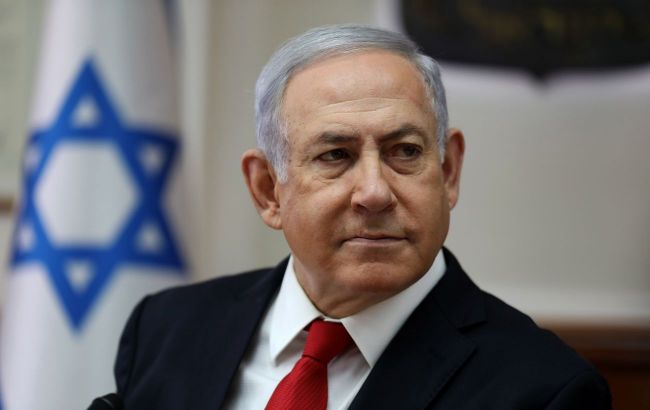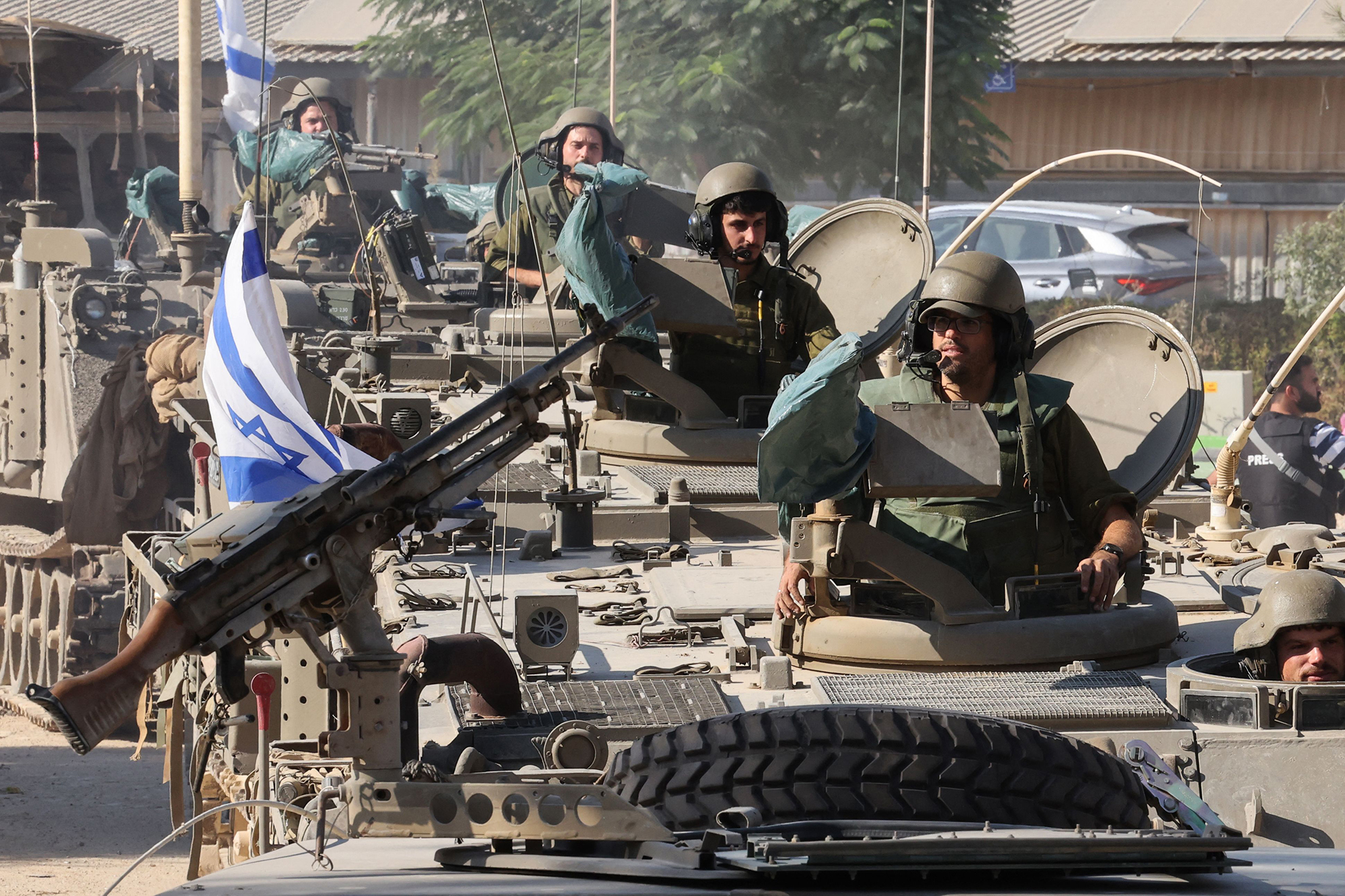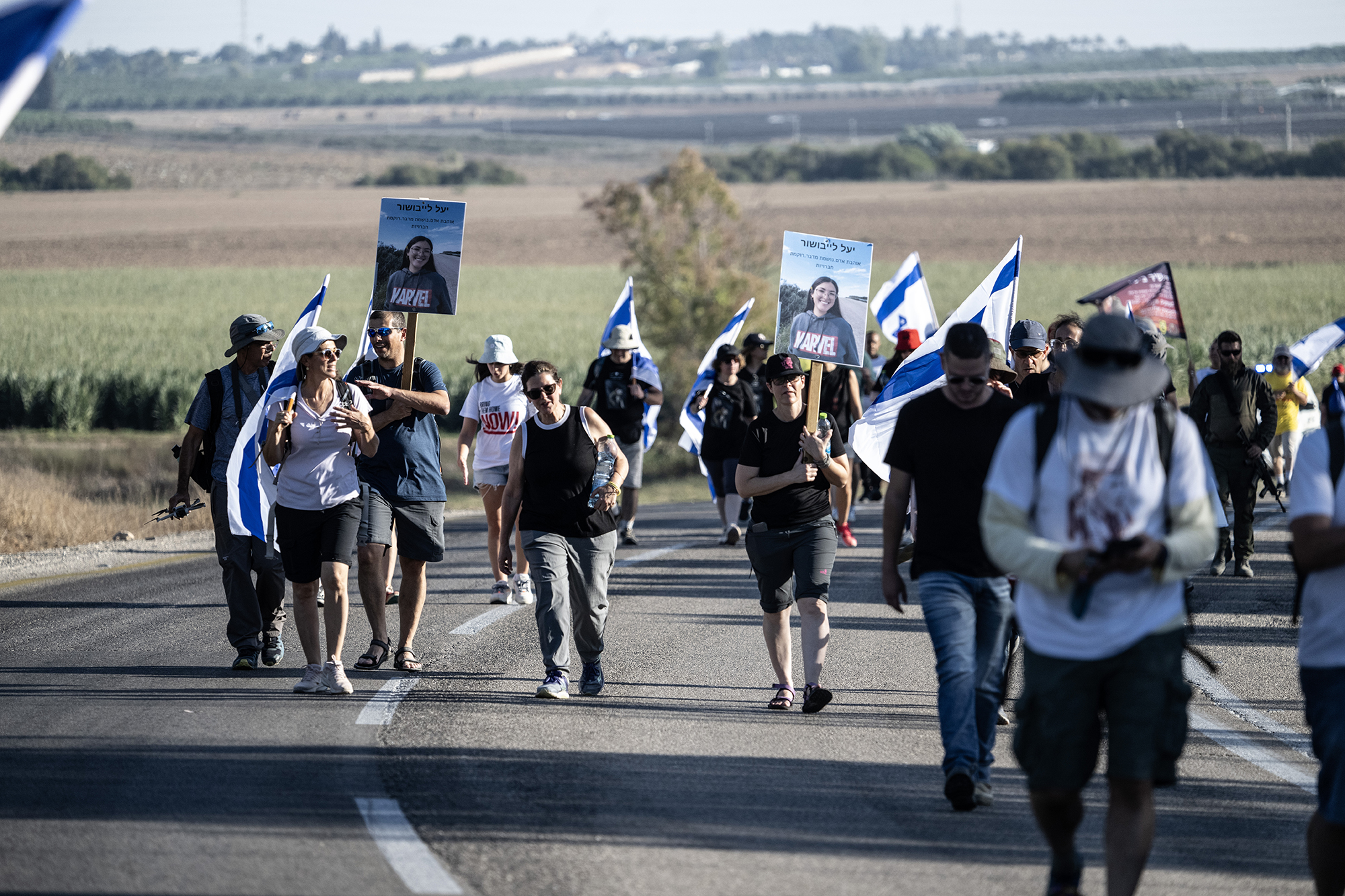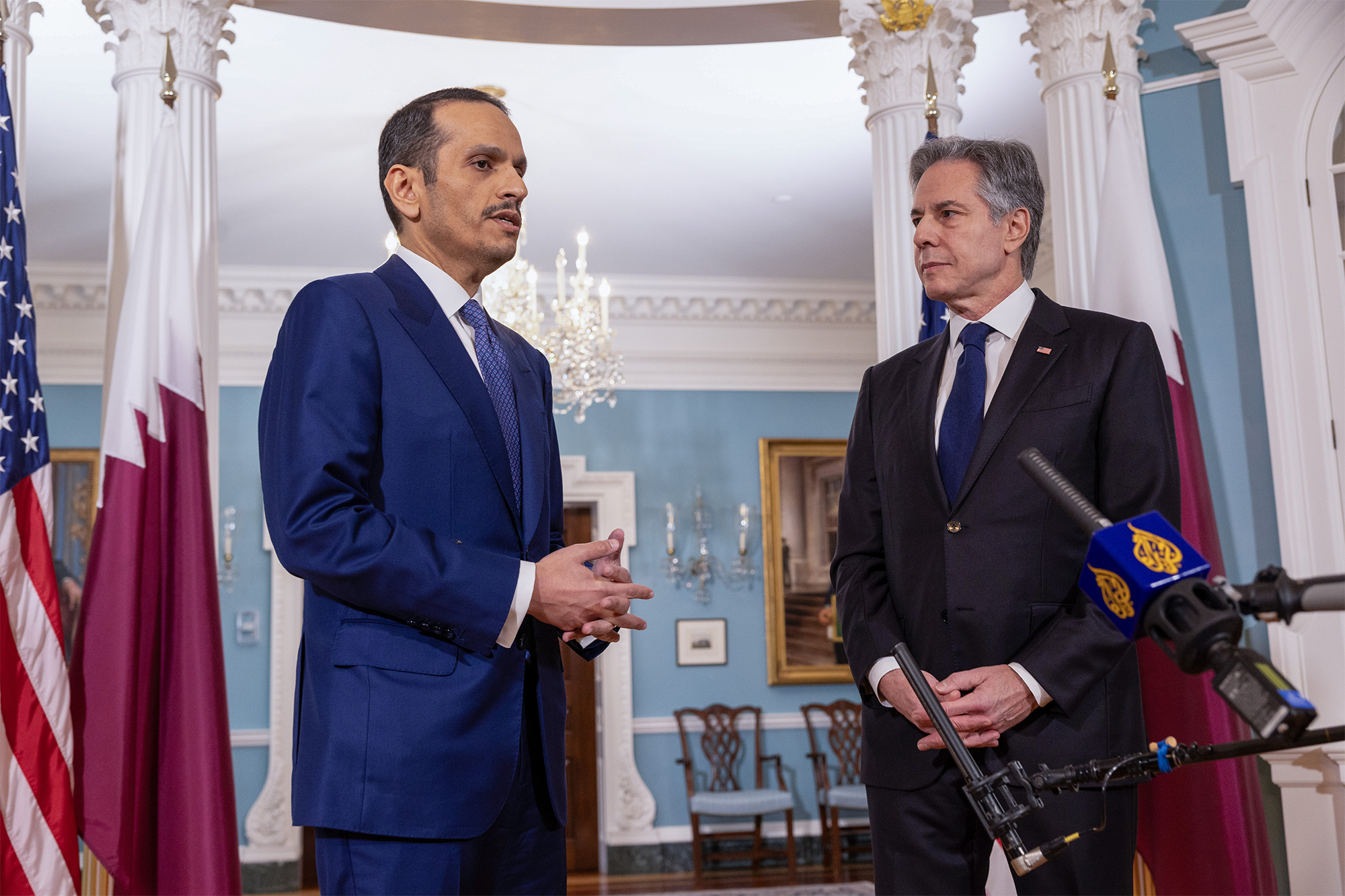Trail of peace: Where Israel searches support and whether Middle East faces another war
 Israeli Prime Minister Benjamin Netanyahu (Getty Images)
Israeli Prime Minister Benjamin Netanyahu (Getty Images)
Israel's operation against the terrorist organization Hamas in the Gaza Strip has been ongoing for over 9 months. Meanwhile, discussions about the possible onset of another war—this time in the north, with Hezbollah militants—are heating up. Israeli Prime Minister Benjamin Netanyahu is visiting Washington to discuss these issues, amidst protests and demonstrations. More details in the report by RBC-Ukraine.
CONTENTS
- What is happening in Gaza
- Other fronts: from Lebanon to Yemen
- Political framework and internal contradictions
- US stance
- Who else can influence situation
In recent months, the situation around Israel and the Gaza Strip has been fluctuating on the escalation scale. The final stage of the operation against Hamas in the south continues, with ongoing attacks on Israel by Lebanese Hezbollah and Yemeni Houthis, and the successful elimination of Hamas commanders.
These events tip the scales in various directions, creating new reasons for "concern" in the international community. Against the backdrop of Israel's rather uncertain international standing, this raises risks for further escalation into a regional conflict.
Prime Minister Benjamin Netanyahu is currently on a long-planned visit to the United States. The main goal of the trip is to confirm support for Israel at all levels, which, as the past few months have shown, is not as absolute and unconditional as it once seemed. This task is complicated by Joe Biden's decision not to run for a second term.
What is happening in Gaza
In the course of the "Iron Swords" military operation, Israel has been systematically destroying Hamas infrastructure and personnel in the Gaza Strip for over 9 months. On May 14, Netanyahu stated that the group had lost about 14,000 fighters. Many militants are believed to have been wounded to varying degrees. Dozens of Hamas commanders have also been eliminated. One of the most significant losses for the terrorists was the death of Hamas military wing commander Mohammed Deif in an airstrike on July 13. Despite this, it is too early to declare the group destroyed as a military force.
"First, even pre-war estimates of Hamas itself suggested a minimum of 30,000 members, plus about 10,000 from Islamic Jihad and several thousand more from other groups. But the problem is that over these 9 months, even under combat conditions, it was possible to recruit new members, and indeed they did. Of course, they do not undergo organized training like in a regular army, but to shoot a rifle or a grenade launcher, they can be prepared in a few weeks. In any case, these are significant losses for them," says Israeli military expert David Handelman to RBC-Ukraine.
The Israeli army has not fully occupied the Gaza Strip. Troops are constantly present only in the Netzarim corridor, which crosses Gaza from east to west, the Philadelphi Corridor along the Egyptian border, and along the entire border perimeter between Israel and Gaza.

Israeli soldiers near the Gaza Strip (photo: Getty Images)
According to Handelman, militants use guerrilla tactics. They do not engage in frontal attacks but instead, hide and retreat, then carry out isolated guerrilla attacks when the Israeli army is in a particular area. In turn, the Israeli army periodically enters areas where militants have returned to restore military infrastructure.
"When the ground operation began, the plan was built in such a way that after the first stage, the so-called achievement of operational control, troops would almost everywhere withdraw and then return to clear the area again," says Handelman.
An alternative plan is to establish permanent Israeli control over the Gaza Strip, introducing a military administration regime, which the Israeli government does not want to do. There are several reasons for this.
Other fronts: from Lebanon to Yemen
The situation in northern Israel is a derivative of what is happening in the Gaza Strip but no less serious. Shelling from the Lebanese group Hezbollah began on October 8 last year, the day after the Hamas attack.
"This means up to two hundred rockets a day, several drone raids. In response, Israeli strikes in Lebanon. Both sides still maintain a relatively minor level of hostilities," says Handelman. "This is still a low-intensity conflict, as neither side wants to escalate into a major war at this point."
Hezbollah Secretary General Hassan Nasrallah reiterated on July 11 that the group's official position is that a ceasefire in Gaza will lead to the cessation of hostilities on Israel's northern border.
In turn, Israel also refrains from launching a full-scale military operation against Hezbollah, limiting itself to remote strikes.
"By all scenarios and calculations, it would be a much more challenging venture than the war with Hamas. It might come to that because the situation on the northern border cannot continue indefinitely as it is," says the expert.
According to Handelman, Hezbollah may cease attacks if a truce is reached in Gaza, but this does not eliminate the problem of Hezbollah's presence. The group could resume attacks at any time. Meanwhile, constant shelling has turned northern Israel into a "gray zone." Over 80,000 residents have been relocated, and tens of thousands of buildings and enterprises have been damaged.
Another relatively distant front for Israel is Yemen. The Iranian-backed Houthi group operating there, like Hezbollah, possesses long-range drones and various types of missiles. Although Yemen is about 2,000 kilometers from Israel, the Houthis can attack Israeli ships in the Red Sea and even Israel itself.
For example, on July 19, a Yemeni drone reached almost the center of Tel Aviv and exploded. In response, the Israeli Air Force attacked the Houthi-controlled port of Hodeidah.
Political framework and internal contradictions
Parallel negotiations between Israel and Hamas on a ceasefire and the return of hostages continue. Recall that during the October 7, 2023 attack, the group captured about two hundred civilians, of whom about 116 are still being held.
The negotiations involve the USA, as well as Egypt and Qatar. Their efforts have already borne some fruit. Last November, a temporary one-week ceasefire was agreed upon, during which Hamas militants released 105 hostages in exchange for 150 convicted terrorists, fuel, and other supplies. New negotiations are ongoing but have yet to yield results. Various settlement concepts have been considered, with the "Biden Plan" being the most discussed lately.
President Biden proposed his initiative at the end of May. It includes three phases. The first phase involves a ceasefire, the release of some hostages, the return of civilians to all areas of Gaza, and a sharp increase in humanitarian aid supplies. The second phase plans for the release of all hostages, a complete cessation of hostilities, and the withdrawal of Israeli troops. The third phase includes the restoration of Gaza and the return of the remains of the dead.
However, there is no unity within Israeli society or among politicians regarding negotiations with Hamas. An important factor remains the relatives of the hostages held by militants.
"Unfortunately, Israeli society is not united on this issue, there are serious differences. The majority demands the release of the hostages, even if it means a complete halt to hostilities. On the other hand, some of the population demands that hostilities continue, destroying Hamas to a complete victory, which is unlikely to be achieved. This part of the population does not consider the release of hostages a top priority. This is a very serious crisis in society," says former Israeli Ambassador to Russia and head of the Russia Studies Program at the Israeli Institute for National Security Studies Arkady Mil-Man to RBC-Ukraine.

Relatives of the hostages march near the Nahal Oz military base (photo: Getty Images)
The main concern of opponents of negotiations is that, in the event of agreements, the not fully defeated military wing of Hamas will, with external assistance, restore its combat potential. After all, such cases have occurred before, notably after Operation "Cast Lead" in 2007-2008.
On the other hand, the Israeli government has yet to provide a clear plan for what will happen to the Gaza Strip after Hamas is defeated. Israeli Prime Minister Benjamin Netanyahu released only a general one-page document in February. It does not mention any role of the Palestinian Authority – Hamas' rival in the West Bank – and rejects unilateral international steps to recognize the Palestinian state.
The government is also under pressure from those evacuated from northern Israel due to shelling from Hezbollah.
"Since the government has no answer as to when people can return to the North, Netanyahu is stubbornly refusing to meet with those who left their homes at the government's instruction. These are issues of everyday life, children's education, property, and other things," says Arkady Mil-Man.
As a result, according to a survey by the Jewish People Policy Institute (JPPI), the Israeli government has low trust among 73% of the population, and 55% of citizens express distrust in the military leadership.
On June 16, the military cabinet, which included government members and opposition representatives, ceased to exist – former chiefs of the General Staff Benny Gantz and Gadi Eisenkot left it. The cabinet made operational decisions in campaigns against Hamas and Hezbollah.
In his statement, Gantz made it clear that he supports the peace plan previously proposed by Biden, saying that he prioritizes the return of hostages "over maintaining power." He also called for early elections. However, for now, the government is not threatened by the opposition's demarche.
"He (Netanyahu - ed.) still has a majority in the Knesset, the coalition is there, so in my opinion, the opposition's actions do not threaten the government. The other question is how united the coalition is. Most governments in Israel collapse not due to opposition actions, but due to internal disagreements," notes Arkady Mil-Man.
Overall, the constant delays in making strategic decisions by the authorities recently are only leading to the accumulation of problems.
US stance
US support as Israel's main ally remains extremely important. And there are new challenges here.
Netanyahu is to meet with Biden in Washington. This meeting was previously planned, but after Biden's withdrawal from the elections, the visit program was slightly changed. Given that the US president will not run for a second term, the key task for the Israeli leadership is to ensure stable support until the end of Biden's term and maintain contacts with the Democratic candidate who will run – likely Kamala Harris. Ultimately, it is necessary to restore contact with Donald Trump.
There are no problems with the latter. Recall that during his first presidency, Trump moved the US embassy in Israel from Tel Aviv to Jerusalem. The so-called Abraham Accords were also signed with US mediation between Israel and several Arab countries to normalize relations.
Trump's approach to peace negotiations with Israel is currently similar to what he proposes regarding Ukraine.
"Just as I said in my conversation with President Zelenskyy and other world leaders in recent weeks, my PEACE THROUGH STRENGTH agenda will show the whole world that these horrible deadly wars and conflicts must end," Trump wrote on July 23.
Kamala Harris's position on Israel remains uncertain. This is partly because she has never overseen relations with Israel or foreign policy in general.
Who else can influence situation
Iran, of course, remains a key factor. In addition to Hezbollah and Hamas, this country supports several other groups in Syria and Iraq and, ultimately, can attack Israel with drones and missiles. Currently, Tehran is not inclined to raise the stakes.
Throughout July, Iranian officials responsible for this direction have been actively stating through various channels that they will continue to support pro-Iranian groups throughout the Middle East, especially those attacking Israel. This is related to concerns following the election of the liberal Masoud Pezeshkian as president of Iran. Recall that during the election campaign, the newly elected president advocated a pragmatic approach to foreign policy, such as the need to resume nuclear negotiations with the West.

Qatar's Foreign Minister Mohammed bin Abdulrahman Al Thani and Secretary of State Antony Blinken after talks between Israel and Hamas (photo: Getty Images)
On the other hand, Iran continues to monitor the US elections and the prospects of Donald Trump and Kamala Harris to understand whether the resumption of dialogue in any form is possible.
According to the Meir Amit Intelligence and Terrorism Information Center in Israel, it is doubtful that Pezeshkian wants or can deviate from the official line on regional issues, especially regarding Israel. No real changes in Iran's regional policy, including its proxies, are expected.
The stance of the Arab states in the region is important in terms of supporting Hamas and organizing life in the Gaza Strip after the militants are defeated. For a long time, Qatar has been the main sponsor of Hamas, generally supporting representatives of the network association Muslim Brotherhood throughout the region. Hamas is also part of this network. And it is in Qatar where negotiations between Israel and the terrorists take place.
Overall, regional players take into account the sharply anti-Israeli stance of the "Arab" street and the importance of Israel as a potential ally against Iran, as well as the possibility of gaining additional benefits from the US. They are generally willing to participate and finance the rebuilding of Gaza, but it all depends on the final settlement plan that is approved.
Last but not least is China. Beijing has perhaps benefited the most from the situation in the Gaza Strip, as it blocks logistical routes between East Asia and Europe, which are alternatives to the Chinese "Belt and Road" initiative. For a long time, China simply observed and limited itself to general statements about the need to end the conflict.
However, on July 23, with China's mediation, 14 Palestinian groups reached an agreement to create a "national interim government for reconciliation" after the end of military actions in the Gaza Strip. However, China has not been very active in this direction yet.
Experts interviewed by RBC-Ukraine suggest that it is possible to destroy Hamas as a military structure in the Gaza Strip, but as an underground terrorist organization, it can quickly revive. Thus, the resolution of social and political issues in the Gaza Strip is on the agenda. This may prove to be much more challenging than the military operation to destroy the militants.
Sources: official statements from Israeli and American politicians, analytical materials from the Meir Amit Intelligence and Terrorism Information Center, sociological surveys from the Jewish People Policy Institute (JPPI), comments from military expert David Handelman, and former Israeli Ambassador to Russia Arkady Mil-Man.


